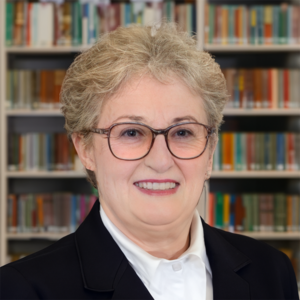When considering a return to education or starting a fresh intellectual pursuit, it becomes important to examine various aspects, such as the blend between traditional classroom settings and the flexibility of online learning.
Each format has its respective advantages and can cater to different learning styles.
Moreover, financial considerations play a significant part in the decision-making process, yet they should not deter one from seeking educational enrichment; numerous institutions offer tailored options for adult learners.
Continuing education is an investment in oneself—opening doors to new interests, career changes, or even a newfound community of like-minded learners.
Continuing Education Guide: Key Takeaways
- Lifelong learning enhances personal and professional growth at any stage of life.
- Careful course selection aligns with individual goals to ensure educational success.
- Educational opportunities, whether online or in-person, foster community and continuous learning.
The Importance of Lifelong Learning

Lifelong learning stands as a beacon for enhancing personal fulfillment and career development, especially for seniors who stand to reap substantial benefits from continued education.
Benefits for Seniors
Engaging in lifelong learning offers seniors a range of benefits.
- Maintains Cognitive Health: It’s well-established that keeping the brain active is critical in maintaining cognitive health. Learning new skills can help sharpen memory and reasoning abilities.
- Improves Self-Esteem and Confidence: Achievement fosters self-esteem. When seniors acquire new knowledge and skills, it naturally boosts their confidence.
- Increases Social Interaction: Educational settings provide opportunities for seniors to connect with peers, fostering a sense of community and belonging.
Studies show a significant portion of seniors pursue education for enjoyment and personal fulfillment, showcasing the intrinsic value of learning.
Career Advancement Through Continuous Education
Continuous education serves as a catalyst for career advancement at any age.
- Keeps Skills Relevant: In dynamic job markets, updating and acquiring new skills ensures individuals remain competitive.
- Career Transition: Lifelong learning can be key to career transitions, enabling one to pivot into new roles or industries.
Professionals, including nurses, have seen a direct correlation between continuing education and improved career prospects.
Personal Development Opportunities
Opportunities for personal development abound in lifelong learning, transforming the way individuals approach both their professional and personal lives.
- Enhances Knowledge Base: Learning builds a knowledge and skills base that extends beyond vocational benefits, enriching personal interests and hobbies.
- Cultivates a Growth Mindset: Being a perpetual student of life encourages a growth mindset, crucial for personal development.
For many adults, lifelong learning is not just about the pursuit of new skills but is intrinsically linked to the pursuit of a content and well-rounded life.
Identifying Educational Goals
Before setting out on a journey of learning, one must map the desired destination. This involves recognizing personal academic or professional aspirations and tailoring one’s educational path to align with those targets.
Determining Personal Interests
When assessing personal interests, individuals typically reflect on activities that capture their attention or topics they are passionate about. This can relate to hobbies that they wish to advance into skills, or simply areas of curiosity. For instance:
- List hobbies or topics you find engaging.
- Seek courses or workshops that mesh these interests with continuing education opportunities.
By establishing which subjects ignite a sense of excitement, learners can target educational programs that not only expand their knowledge and skills but also deliver a satisfying learning experience.
Establishing Career Objectives
Setting career objectives guides one in choosing a continuing education program that will bolster a current career or pave the way for a new one. Key considerations include:
- Analyze the skills required for your desired job role.
- Identify any knowledge gaps that need to be filled.
This approach ensures that the education one pursues is relevant and constructive, directly contributing to their career trajectory. It creates a clear set of expectations for what the learner should gain from their educational endeavors, hence maximizing the investment in their future.
Selecting The Right Courses

When diving into the world of continuing education, it’s crucial to choose courses that align with personal and professional goals, offer recognized accreditation, and provide the flexibility needed for successful completion.
Understanding Course Accreditation
Accreditation is the stamp of quality for educational courses. It ensures the course meets specific standards set by a recognized accrediting body.
- Look for accreditation: Verify that the courses are accredited by relevant authorities within higher education.
- Check for transferability of credits: Make sure the credit hours can be applied towards degrees or other certifications if needed.
Exploring Subject Areas
With an expansive variety of subject areas available, learners should consider their interests and career requirements before enrolling.
- Online courses offer access to a range of topics, from business to healthcare, often with the same rigor as in-person classes.
- Identify career or personal interests: Align courses with career advancement or personal enrichment.
- Research course content: Ensure that the course content is up-to-date and relevant.
Course Flexibility and Access
The appeal of many continuing education courses, especially online courses, lies in their flexibility.
Learners can access materials at any time, balancing education with other life responsibilities. Flexibility is a key component for professionals like nurses who may have irregular working hours.
- Consider course format: Look for options that suit your schedule, whether it’s in-person, online, or hybrid.
- Evaluate access to resources: Confirm the course provides the necessary learning materials and support services.
Maximizing Learning Outcomes
When one seeks to enhance their educational experience, focusing on strategies to maximize learning outcomes is crucial.
This effort requires identifying effective study techniques, leveraging technology, and engaging fully with course material to elevate the quality of learning.
Effective Study Techniques
- Spaced Practice: Break studies into regular, short sessions over a longer period, rather than cramming. This technique supports deep learning and better retention.
- Interleaving: Mix different topics or subjects while studying to improve problem-solving skills and transfer of knowledge to new contexts.
- Dual Coding: Use both visual and verbal materials, such as diagrams alongside text, to better understand and remember information.
- Self-Assessment: Regular quizzes and practice exams can be a powerful tool for reinforcing learned material and evaluating one’s understanding.
Leveraging Technology
- Online Platforms: Utilize educational platforms that provide interactive lessons and instant feedback, fostering a dynamic learning environment.
- Digital Tools: Apps that allow for note-taking, scheduling, and flashcards can streamline study habits and boost productivity.
- Adaptive Learning Software: Tailored learning experiences that adjust to the learner’s level can enhance individual skills and promote mastery.
Engaging with Course Material
- Active Learning: Rather than passively reading or listening, actively engage by summarizing information, asking questions, and applying concepts to real-world scenarios.
- Peer Collaboration: Group study sessions and discussion forums can offer diverse perspectives and clarifications, deepening the engagement with the content.
- Instructor Interaction: Don’t hesitate to reach out to educators for guidance. Their insights can illuminate complex topics and enrich one’s understanding.
Online Learning vs Traditional Classrooms
When exploring continuing education, it’s important to understand the distinctive features and benefits of different learning environments.
This section will help seniors navigate the educational landscape by comparing online learning with traditional in-person classrooms.
Pros and Cons of Online Education
Online learning has surged in popularity, especially with platforms like Zoom making distance education more accessible. Here’s a quick look at its advantages and drawbacks:
Advantages:
- Flexibility: Courses can be attended from anywhere, fitting into any schedule.
- Technology: Advanced tools facilitate interactive and engaging learning experiences.
Drawbacks:
- Self-Discipline: A high degree of self-motivation is required.
- Minimal Social Interaction: Fewer opportunities for face-to-face engagement with peers and instructors.
The Experience of In-Person Learning
In-person learning offers a traditional classroom setting where students engage directly with instructors and peers. Let’s consider its primary facets:
Benefits:
- Interactive Learning: Direct interaction enhances engagement and clarifies concepts.
- Structured Environment: A set schedule aides those who prefer a routine.
Challenges:
- Commute: Physical attendance may be cumbersome, particularly for those with mobility issues.
- Inflexibility: Less freedom to choose learning times can conflict with personal obligations.
Navigating Hybrid Learning Models
Hybrid models blend online and in-person aspects, offering a balanced approach:
How to Maximize Hybrid Learning:
- Leverage the technology of online resources to prepare for in-person sessions.
- Use face-to-face time for complex discussions and hands-on activities.
Hybrid Learning Insights:
- Facilitates greater adaptability to individual learning preferences.
- Offers social interaction while retaining some flexibility of online study.
Financial Considerations for Continuing Education

Navigating the financial aspects of continuing education is crucial for learners of all ages, particularly seniors who may be on fixed incomes. The costs associated with further learning can vary widely, so it’s important to understand the options for managing them.
Understanding Scholarships and Aid
Scholarships aren’t exclusively for young college-bound students. Many organizations offer scholarships specifically tailored to adult learners and seniors. These can significantly reduce the financial burden of continued education.
- Research scholarships that are geared toward your field of study or demographic.
- Check with professional associations, community organizations, and educational institutions for available funding.
Continuing education may qualify for various forms of financial aid as well. Government programs and tax credits, such as the Lifetime Learning Credit, can offer relief during tax time.
Budgeting for Educational Expenses
A key element in effectively managing educational expenses is constructing a detailed budget. A clear understanding of costs helps in planning how to finance your education without placing undue strain on your finances.
- List out all anticipated expenses, including tuition, books, and supplies.
- Factor in additional costs such as travel and online access if applicable.
When considering educational expenses, also explore whether employers offer tuition assistance programs, which can offer full or partial reimbursement for courses related to your profession.
Exploring Free Educational Resources
There are numerous free educational resources available for learners looking to expand their knowledge without impacting their wallets.
- Many reputable institutions provide free online courses ranging from single lectures to full series on a variety of topics.
- Local libraries and community centers often host workshops and classes at no cost.
Whether you’re seeking professional development or personal enrichment, leveraging these free options can be a great way to pursue learning without financial investment.
The Role of Educational Institutions
Educational institutions play a pivotal role in facilitating lifelong learning and professional development for seniors. They provide structured programs and courses that cater to varying interests and needs.
Colleges and Universities Providing Senior Education
Harvard Extension School, a branch of the Division of Continuing Education, illustrates how higher education institutions are evolving to meet the educational needs of seniors. They offer a myriad of courses and learning opportunities tailored for adults seeking to enhance their knowledge and skill set later in life. These offerings often include personal enrichment classes, professional certificates, and even degree options.
- Community Colleges: Local community colleges are essential in promoting senior education, providing affordable and accessible learning experiences. They often team up with community organizations to offer a variety of courses that range from creative arts to technology skills.
Community Organizations and Clubs
Community-based entities serve as a bridge between seniors and continuous learning by offering a conducive environment for education outside traditional classroom settings.
- Community Centers: These local hubs provide seniors with an array of learning opportunities, including workshops, seminars, and social events, endorsing lifelong learning within the community fabric.
- Clubs and Special Interest Groups: They act as informal learning spaces where seniors can explore new hobbies, learn languages, or engage in intellectual discussions, all driven by shared interests.
Professional Development Programs
A reflection of the importance of ongoing career development can be seen in professional development programs specifically designed for seasoned professionals.
- Organizations: They typically conduct industry-specific seminars and workshops aimed at keeping skills current and knowledge fresh.
- Conferences: Attending relevant conferences is another way for seniors to stay engaged with the latest trends in their fields and network with peers.
Learning Opportunities Beyond the Classroom

Exploring new horizons in education isn’t confined to traditional academic settings. Senior learners have the distinct privilege of engaging with a multitude of learning environments that extend beyond the four walls of a classroom.
Workshops and Conferences
Workshops present practical, hands-on experiences where seniors can acquire new skills or refine existing ones. They might encounter workshops focusing on everything from creative writing to digital literacy, often under the guidance of experts.
- Example: Attending a workshop on smartphone usage can boost one’s confidence in navigating modern technology.
Conferences offer a platform for knowledge expansion, networking, and staying updated on the latest trends in various fields. They are a goldmine for those interested in deepening their understanding and leadership abilities within a particular domain.
- Benefit: Participants can take advantage of panels, keynote speeches, and breakout sessions to engage with thought leaders and peers.
Cultural and Historical Programs
-
Encountering magnificent landmarks like the Sistine Chapel brings history and culture to life, offering a visceral learning experience that books simply can’t match. This form of education combines visual splendor with historical enlightenment.
Programs that include historical tours or visits to cultural centers allow learners to dive into humanity’s collective past, often sparking a newfound appreciation for different civilizations and artistic endeavors.
- Engagement: Through such cultural immersion, one’s global perspective widens, fostering both intellectual curiosity and social engagement.
Certifications and Degrees for Career Advancement
In today’s job market, certifications and degrees are more than just educational achievements; they’re powerful tools for career advancement. This section delves into the importance of professional certificates, strategies for gaining new skills to shift careers, and the role of graduate degrees in deepening your expertise.
Professional Certificates
Professional certificates are the stepping stones to enhancing one’s job prospects and demonstrating expertise in a specialized area. From Project Management Certification (PMP) to Certified Associate in Project Management (CAPM), these credentials can be a significant boost to your resume.
Actionable Steps:
- Identify industry-recognized certifications that align with your career goals.
- Enroll in an accredited program that offers these certifications.
Certificates provide validation of your skills and a competitive edge in the job market.
Acquiring New Skills for Career Shifts
Ever thought about changing tracks in your career? Acquiring new skills is essential. With the dynamic nature of industries, learning platforms provide a range of courses to help mid-career professionals transition successfully.
- Identify gaps in your skillset that are relevant to the new field you’re interested in.
- Look for accredited certifications that can fill these gaps and enable a career shift.
These skills become the bridge to a new career path, opening doors to opportunities that match your evolving interests and ambitions.
Graduate Degrees for Deepening Expertise
For those aiming to climb to the very top of their field, graduate degrees often serve as a key differentiator. Whether it’s an MBA for business professionals or a Master’s in Education for academics, these degrees can deepen expertise and expand one’s professional network.
Here’s what to do:
- Research the most relevant graduate degree that will elevate your career potential.
- Choose a program that balances both theoretical and practical learning.
By leveraging a graduate degree, professionals can unlock higher-level positions and take on more complex challenges in their careers.
Career Development and Licensing
In the professional sphere, maintaining a current license and engaging in continual learning are pivotal for career progression and competency.
License Renewal for Professionals
For individuals in regulated industries, such as healthcare, law, and finance, license renewal is an integral part of professional operations. They must comply with specific Continuing Professional Education (CPE) requirements to keep their license active. Professionals should take the following steps:
- Identify Renewal Requirements: Each profession has unique criteria established by regulatory bodies.
- Select Approved Providers: Make sure the educational courses are from recognized institutions or programs.
- Document Course Completion: Maintain meticulous records of all completed coursework for submission to the licensing board.
Lifelong Learning in the Workplace
Adopting a stance of lifelong learning is vital for organizations to stay competitive and for employees to advance their careers.
Companies often initiate internal development programs structured to foster continuous growth.
- Investing in Staff: A robust learning culture has tangible benefits, such as increased job satisfaction and performance, as evidenced by programs launched by enterprises like Johnson & Johnson.
- Barriers to Participation: Employees may face obstacles like time constraints or lack of support. Recognition of these barriers is the first step toward addressing and overcoming them.
In workplaces, especially in nursing, the continuous professional development of staff not only ensures the highest level of care but also fortifies a nurse’s feeling of professional fulfillment and value alignment with their organization.
This viewpoint is shared by nurses across various sectors, highlighting the importance of supportive learning environments for career advancement.
The Power of Community in Learning
The fusion of community within the educational context brings a supportive atmosphere that enhances learning.
In this pursuit of knowledge, the synergy of camaraderie and shared goals plays a pivotal role.
Building Learning Networks
Community-driven learning networks are pivotal in fostering an environment of shared knowledge and resources.
They are particularly valuable for seniors engaging in lifetime education.
Networks can be built around specific interests or subjects, which allows for deeper engagement and collaboration.
For instance, nurses returning to education can enhance their learning experience by connecting with peers and professionals, forming networks where expertise and experiences are openly shared.
- Identify common interests: Seek out groups or clubs within areas of interest to find potential network members.
- Participate actively: Be a contributing member in discussions, projects, and events to build and strengthen relationships.
- Share resources: Exchange materials, advice, and experiences to enrich the community’s knowledge base.
Mentorship and Support Systems
A robust mentorship program pairs individuals with experienced mentors to provide guidance, share insights, and offer moral support.
Support systems within learning communities can play a significant role in maintaining motivation and achieving educational aspirations.
Effective mentorship is rooted in mutual respect and a commitment to growth.
It can lead to improved outcomes, particularly for those accessing free senior education programs, where learners might seek additional structure and support.
- Seek opportunities for mentorship: Many educational institutions offer formal mentorship programs. Don’t hesitate to enroll.
- Create mutual goals: Establish clear objectives with mentors to focus the relationship and measure progress.
- Provide reciprocal support: Remember that mentorship is a two-way street; offer your insights and feedback as well.
Exploring Different Domains

When venturing into continuing education, there’s a vibrant spectrum of fields to explore that can reinvigorate careers and personal growth.
This section guides you through essential domains that support varied interests and career objectives.
Computer Programming and Technology
- Skills to Gain: Mastery in languages like Python or Java; understanding of algorithms and data structures; web development know-how.
- Course Formats: Online classes led by industry experts, in-person workshops, interactive coding bootcamps.
- Actionable Steps:
- Identify the programming language relevant to your interests.
- Enroll in a structured course offering hands-on projects.
More senior learners are embracing computer programming as a way to challenge themselves intellectually, stay marketable, and even enter a new career phase.
Technology’s continuous evolution opens endless learning tracks, tailored to both beginners and those with existing knowledge.
Languages and Communication Skills
- Goals: Fluency in a foreign language; enhanced nonverbal and verbal communication competencies.
- Learning Resources: Immersive language software, university extension programs, conversational practice groups.
- Achieving Fluency:
- Practice with native speakers.
- Consistent, daily language exercises.
Proficiency in foreign languages and effective communication can break barriers and create new opportunities.
Whether for travel, cultural appreciation, or business, acquiring another language is a powerful skill that connects us in an increasingly globalized world.
Health and Nursing Education
- Key Focus Areas: Patient care advancements, medical technology, nurse leadership principles.
- Learning Options: Accredited online courses, continuing education units (CEUs), professional workshops.
- Progressive Learning:
- Select relevant specialties or emerging health topics.
- Apply knowledge through practical, on-the-job situations or simulations.
Continuous learning in the field of health and nursing education ensures that healthcare professionals stay at the forefront of patient care and medical innovation.
Through specialized courses and certifications, nurses and health practitioners sharpen their skills and enhance their ability to make meaningful contributions to the health sector.
Frequently Asked Questions
In this section, we uncover practical insights for seniors engaging in continuous learning. Addressing the common queries can significantly enhance their educational journey.
What are effective strategies for selecting courses in continuing education for seniors?
When selecting courses, seniors should assess their interests and goals, then align them with courses that offer flexibility and cater to their preferred learning style.
Choosing subjects that excite and challenge can lead to a more fulfilling educational experience.
What approaches can seniors take to maximize their learning experience in continuing education programs?
To make the most out of their learning, seniors can adopt active learning strategies such as participating in discussions, practicing new skills regularly, and seeking courses with hands-on experiences.
They can also take advantage of modern learning aids and technology to supplement their education.
How can one embrace a culture of lifelong learning and apply it throughout their senior years?
Embracing lifelong learning involves staying curious, being open to new ideas, and taking initiative in exploring various fields.
Seniors can join learning communities or pursue senior courses and learning opportunities for structured guidance.
What are the benefits of lifelong learning for personal and professional development?
Lifelong learning can enhance cognitive functions and improve self-esteem.
Professionally, it keeps one updated with current trends and can open doors to new opportunities.
It also enriches personal development through expanding perspectives and social interaction.
What resources or handbooks are available to guide seniors in making lifelong learning a reality?
Several resources are available, including online directories and handbooks like the Nurse’s Guide To Continuing Education for industry-specific learning or general resources such as those found in community education programs.
What role does executive education play in fostering lifelong learning for senior professionals?
Executive education offers tailored, high-level courses that hone leadership and management skills for senior professionals. These courses ensure they stay at the forefront of industry best practices.
Such education is critical for ongoing professional growth and maintaining a competitive edge.
Through these FAQs, seniors can navigate the landscape of lifelong learning with confidence. They can also strategically select courses, maximize their experiences, and achieve personal and professional enrichment.






